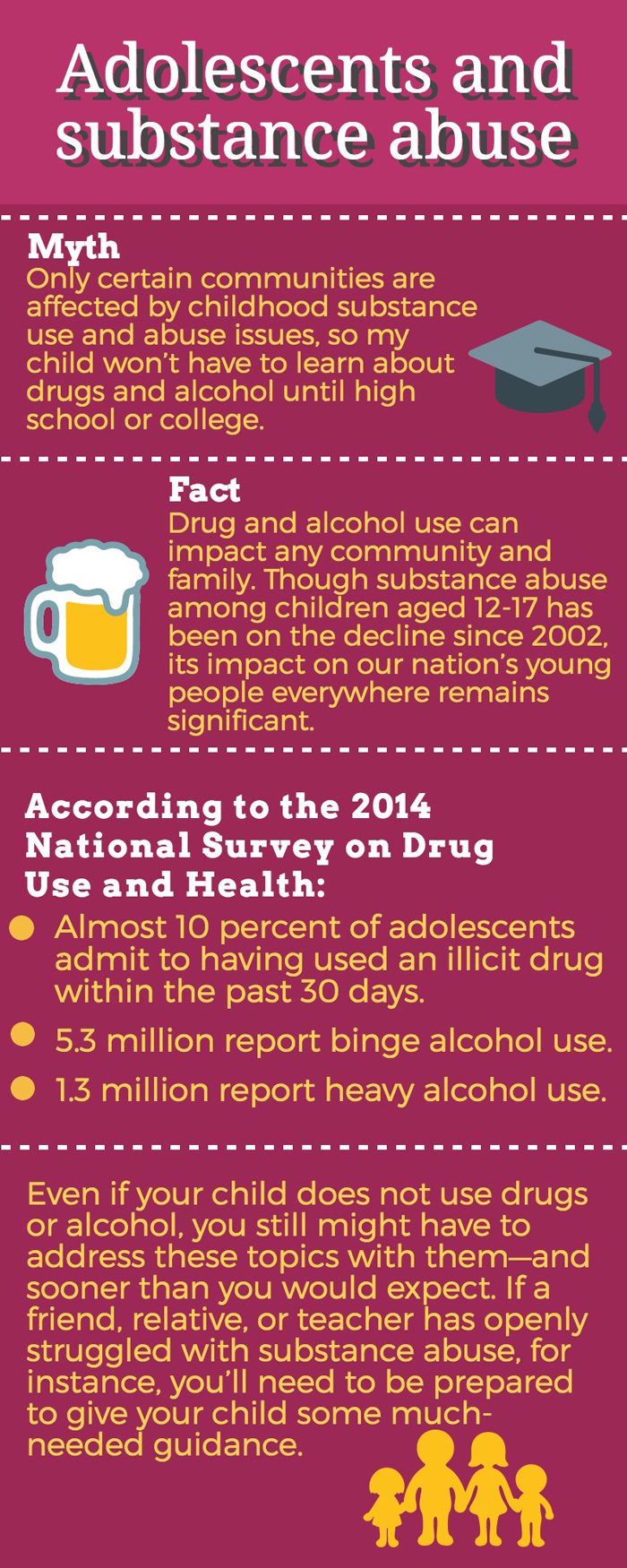 “Five surprising household items kids use to get high!” “Drugs found in local elementary school!” Sometimes it seems as if every day brings a new headline about children substance abuse. Naturally, as a parent, you wonder what you can say or do to keep your kid(s) safe, healthy, and legal.
“Five surprising household items kids use to get high!” “Drugs found in local elementary school!” Sometimes it seems as if every day brings a new headline about children substance abuse. Naturally, as a parent, you wonder what you can say or do to keep your kid(s) safe, healthy, and legal.
Touching base with your children on serious issues like substance use, abuse, and addiction may seem daunting. However, there are clear steps you can take to prepare yourself for these discussions, and those tips are probably not what come to mind when you think of “the talk.”
In fact, there are many engaging, reliable, and comfortable ways for you to have a meaningful conversation with children about drugs and alcohol. Picking age-appropriate content and delivery can help children to retain more of the information. As an added bonus, doing “the talk” the right way could establish you, the parent, as your child’s most trusted resource on the subject as they get older.
In this series of articles, we will go over risk factors for childhood substance use and some age-specific advice on how to talk to children about substances at different points in their lives. To start, there are some tried and true techniques that can help you have the talk no matter your child’s age!
General Tips
1. Seek out reliable knowledge about the substance-related challenges currently impacting young people in your area. If you approach your child with dated or inaccurate information, you could be losing face in your child’s eyes. Whether you present unreliable information mistakenly or as part of a scare tactic, if you are caught, the effect is the same. Your child will go somewhere else for information in the future… and you might not like their source.
Luckily you have resources like the National Institute on Drug Abuse (NIDA) to catch you up on annual substance trends in youth populations and general substance alerts by region, all backed by thorough research.
2. Don’t lie. You absolutely have the right to determine the content you feel your child is prepared to handle. You and your child are the best judges of what information is needed in the moment. On the other hand, by outright misleading your child, you are undermining your future credibility as well as your child’s ability to make good choices about their health on their own.
Do some thinking about how much is right to reveal at this stage before it comes up, and be ready and responsive if your child ultimately takes the talk down a different path.
3. Look for teachable moments. The U.S. Department of Education Safe & Drug-Free Schools Program recommends that parents take advantage of natural “teachable moments” when encouraging children to stay substance-free. Situations involving substance use in media, your community, and social and family circles are all fair game. With very young children, even conversations about respecting people’s bodies, eating healthy foods, and avoiding household poisons could set the stage for talks specific to substance use down the line.
These real life lessons are much more common and valuable to children than you know—and probably a lot more comfortable for you both to talk about!
4. Conversations go both ways. Plan what you want to say, but be flexible if things take a different turn. Do not forget that having the talk at all is ultimately about your child and his or her needs, not yours.
Let them ask questions throughout “the talk” so it will not feel so much like a “talking to.” Even better, ask them questions. You might even casually ask your child what they would say or do in a certain situation. This could give them an opportunity to think ahead and practice their real-life responses. You will also learn much more about your child by asking them what they think than you would by just telling them what you think, alerting you to potential risk factors along the way.
If you still feel at a loss for where to start, keep checking in! These guidelines are only the basics, and there are so many actions a concerned parent can take to prevent childhood substance use.






